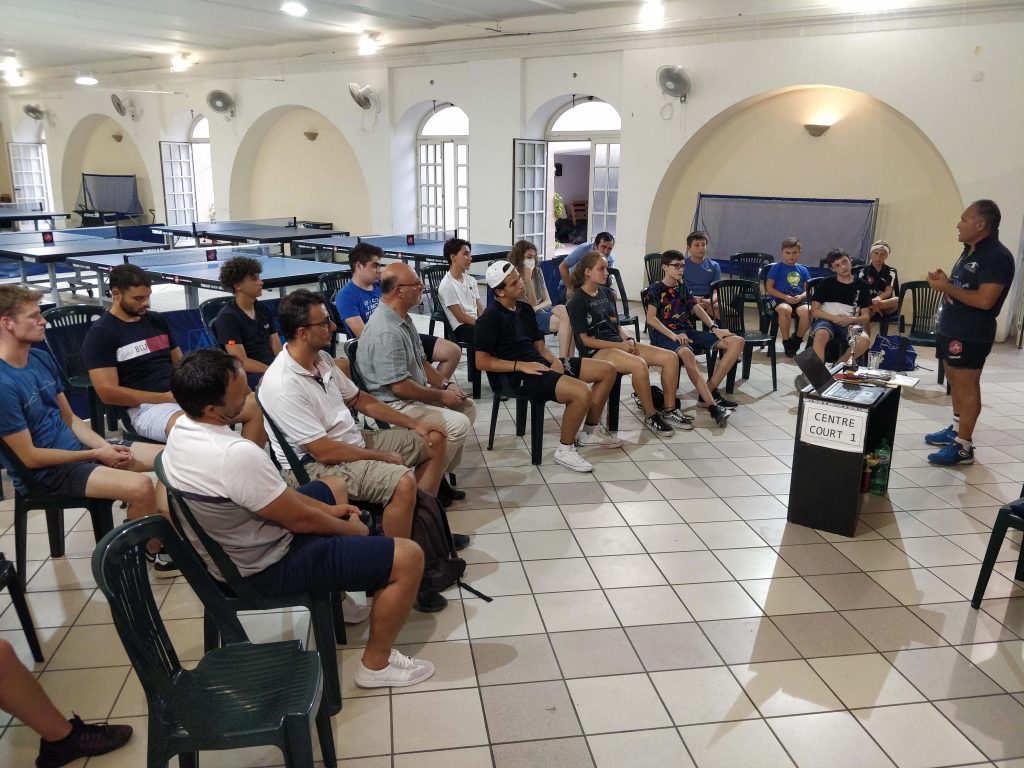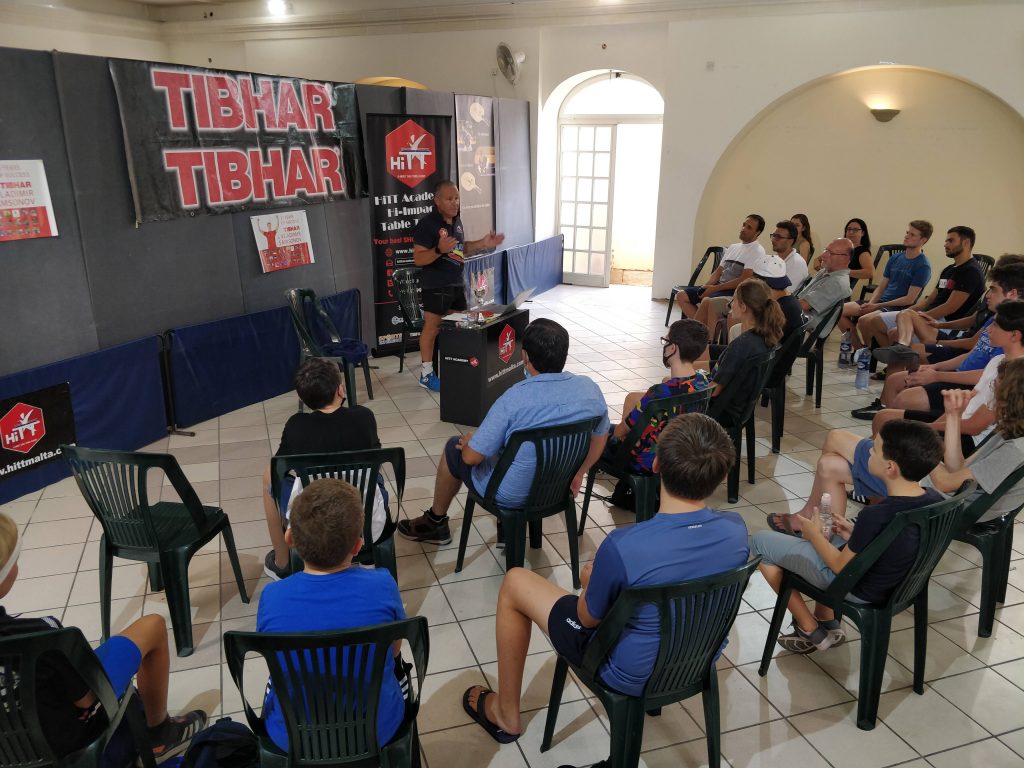As you think, so shall you become.
Bruce Lee
We’ve all found ourselves in a difficult situation during an important match, all pumped up, adrenaline levels through the roof and heart racing. Our palms get sweaty, butterflies flutter in our stomach. How many of us have the ability to stay connected with the present moment in such a situation? How many of us lose focus, with thoughts of previous errors or future outcomes flooding our mind?
Stop. Before you continue reading this, close your eyes and count to 10, taking deep, slow breaths.
Done? Ok, now you’re ready to learn all about the power of living in the moment. Because that’s the key takeaway from the latest HiTT workshop, led brilliantly by our Head Coach Mario Genovese. Living in the moment, being constantly present in every action you take, is how you can maintain your full focus during table tennis – most importantly during matches, but also while training.

Mindfulness and how (not) to lose it
Our brains have a natural tendency to drift away from the present moment in abstract, seemingly unconnected thoughts. That’s the power of our subconscious, a part of our brain that is so powerful that it can take control of our thoughts in the blink of an eye.
During matches, when something bad happens (when your opponent wins a point by hitting an edge or a net, for example), many of us lose focus. Not only for that rally, but sometimes for the rest of the set. Anger and frustration surge within us, and we lose the focus on the now, while our brain dwells on how unlucky we are. But the truth is that for every net your opponent hits, you’ve probably hit one as well. Nets and edge points are just part of the game, and they should not be given more weight than normal points.
Control of emotions and anger management are thus crucial for the professional table tennis player. Mindfulness dissolves when we let ourselves become agitated or frustrated with ourselves, and then we are no longer able to make good decisions. This also affects our positivity, assertiveness and creativity during play. In fact, players who find themselves in a bad situation tend to start playing very cautiously, using unimaginative shots and avoiding any risks. This will only help your opponent get mentally stronger for the rest of the match.
What are the things that can trigger subconscious thoughts?
Distractions. We need to be able to resist any form of distraction so that we can stay in the moment. Shouting from the next court, loud clapping from spectators, our own anxiety, daily problems at home or work, or even something that happened on our way to the competition may all lead to a loss of focus.
Perceptions are another source. Some perceived impressions about an opponent can easily distract us and make us lose control of the now. It could be as simple as seeing that your opponent’s racket has long pimples on his backhand, and like many players, you just hate playing against long pips.
Can Mindfulness solve our problems?
By learning to stay focused on the present moment and strengthen the mind-body connection we can overcome situations of distress. How?
- By always setting an objective. (For example, ‘I want to win 60% of my matches next season’, or ‘I want to beat player X in the next competition.’)
- Enjoy each and every moment of your training and competition
- Replay the positive aspects of your game to get on the positive track
- Use meditation and visualisation to create a stronger mind to body connection
It is only by being constantly present during your practice and playing that you can ensure your full focus at all times. And by learning to stay focused on the present moment you will be able to unlock your full potential.
Q&A time
During our Q&A session, Mario answered two very important questions.
The first one was whether mindfulness applies to all levels of players. And the answer was yes, it absolutely does. The objectives might be different for a beginner, but the concept of living in the moment applies across the board. Mario mentioned Brazilian star Hugo Calderano who came up to being currently number 7 in the world, from a country that until a decade ago was not a strong table tennis contender.

The second question was about how to remove a mental block, specifically related to when one is unable to beat a particular player, even when their skills are at par. The answer here was that depending on how strong and deep that block is, there are ways to use mental coaching to remove it. It might take up to 30 sessions of consistent mental training to get there, but the results will eventually show. Although these type of sessions can be done by the players themselves, deeper blocks require the help of a professional Mental Coach, with experience in treating such problems.
About HiTT Academy
HiTT Academy offers opportunities in local and international table tennis competitions, training camps and workshops. Our dedicated coaches provide professional advice to all levels of players from beginners to advanced. Learn more about us on https://hittmalta.mt/ or find us on Facebook.